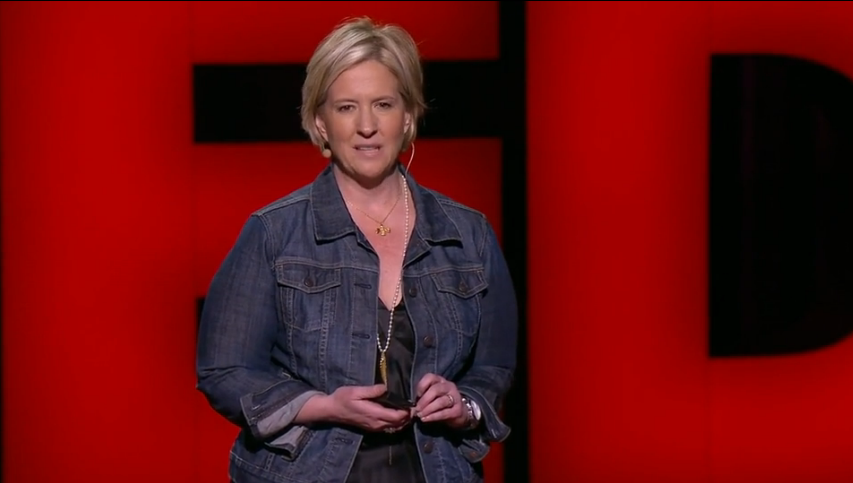The first is: vulnerability is not weakness.
第一件事,脆弱不是弱點。
And that myth is profoundly dangerous.
并且這種錯誤理解非常危險。
Let me ask you honestly -- and I'll give you this warning, I'm trained as a therapist, so I can out-wait you uncomfortably
我想誠懇地請問大家 -- 先給個提醒,作為一個受過專業訓練的治療師,我知道你們會感覺不太自在
-- so if you could just raise your hand that would be awesome
-- 所以你們只要舉手就很好了
-- how many of you honestly, when you're thinking about doing or saying something vulnerable think, "God, vulnerability is weakness."
-- 坦誠地講有多少人, 當你們想到做一些脆弱的事或說一些脆弱的話的時候,會覺得:天啊,脆弱就是軟弱,這就是軟弱?
How many of you think of vulnerability and weakness synonymously?
有多少人認為脆弱和軟弱是一回事?

The majority of people. Now let me ask you this question:
大部分人。現在我們這樣來問:
This past week at TED, how many of you, when you saw vulnerability up here, thought it was pure courage?
在TED剛過去的這周,有多少人,當你們看到(我在這兒講)脆弱的時候,認為那是純粹的勇氣?
Vulnerability is not weakness. I define vulnerability as emotional risk, exposure, uncertainty.
脆弱不是軟弱。我把脆弱定義為:情感的風險、流露,以及不確定性。
It fuels our daily lives. And I've come to the belief -- this is my 12th year doing this research
它驅動我們的日常生活。并且我已經達成了這樣一種信念 -- 我已經研究這個課題12年了
-- that vulnerability is our most accurate measurement of courage -- to be vulnerable, to let ourselves be seen, to be honest.
-- 那就是,脆弱是對我們的勇氣最精確的衡量 -- 保留脆弱,開放自我,保持真誠。
One of the weird things that's happened is, after the TED explosion, I got a lot of offers to speak all over the country
有個奇怪的事就是 在TED這個演講轟動之后, 我收到全國各地的很多邀請
-- everyone from schools and parent meetings to Fortune 500 companies.
-- 從學校家長會 到世界500強的公司。
And so many of the calls went like this, "Dr. Brown, we loved your TED talk.
很多電話都是這樣的: “嗨,布朗博士,我們喜歡您的TED演講。
We'd like you to come in and speak. We'd appreciate it if you wouldn't mention vulnerability or shame."
我們想邀請您來講一講。 但有一件事 希望您不要提到脆弱或者羞恥。”











